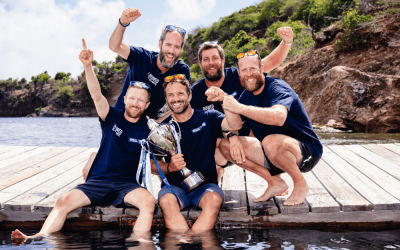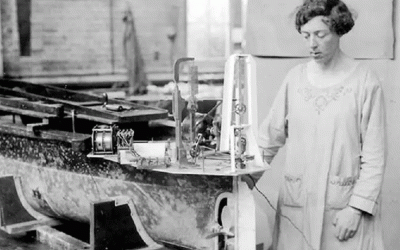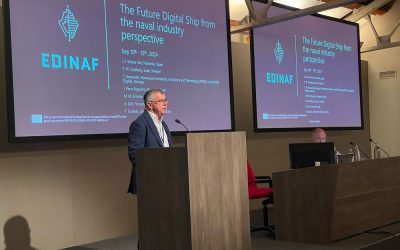 The Naval Architect: Jul/Aug 2020
The Naval Architect: Jul/Aug 2020
DNV GL’s ‘Certificate in Infection Prevention for Maritime’ (CIP-M) is an adapted certification in cooperation with the classification society’s healthcare division. Luca Crisciotti, CEO for DNV GL Business Assurance, defines the CIP-M as: “a kind of tool which is allowing us, through the companies, to monitor infection risks as well as to mitigate measures for treatment onboard if an outbreak occurs.” CIP-M will make its world first debut for Genting Cruise Lines’ Explorer Dream, which the classification society says is one step towards restoring industry and passenger confidence in a sector so adversely affected by Covid-19.
Infection prevention work is not new to DNV GL, Crisciotti points out, as since its beginnings DNV GL Healthcare has accredited 630 hospitals worldwide and has dealings with 3,500 healthcare organisations globally. He says that creating the sector specialised CIP-M was a collaborative effort, in which every protocol issued is heavily customised. “That’s extremely important. It’s only by combining expertise of the industry with the knowledge of infection prevention that you can deliver a good service to your customers.”
Crisciotti comments that creating trust and confidence in the infection prevention response with employees, customers and stakeholders relies upon having its foundations in robust knowledge and experience, which DNV GL Healthcare has been gathering for the past 12 years. “Our approach to organising infection prevention is exactly in the wording ‘prevent’, when we started this business, we wanted to innovate the way that hospitals are assessed by companies like us. Our methodologies are focused on preventing incidents from happening, rather than mitigating the effect of something that’s already happened.”
The CIP-M combines of all of DNV-GL’s experience and the technology known within the healthcare with ISO 9001, the international standard that outlines specific requirements for a quality management system sector, Crisciotti explains. The programme also incorporates national and international requirements, is of hospital grade and integrates the specific standards of the industry.
Not only that, but the certification programme, which has been adapted for the maritime sector, was originally issued last year prior to the Covid-19 outbreak and has since been validated by several authorities. “This is something which is compatible with recommendations that have been issued by the US Centers for Disease control and Prevention (CDC), WHO, OSHA as well as CMS,” notes Crisciotti. He adds that not only is the certification specifically adapted for the maritime industry, but its application for each customer is also customised, and as a result, the broad cost of meeting CIP-M requirements is difficult to confirm.
Although the CIP-M is a comprehensive document, its skeleton structure can be summarised into nine main points: quality management, project management, medical staff, case management, staffing management, medical infirmary patient right, medical record services, physical environment and the infection prevention and control system service delivery. The vessel’s operation, management of physical distancing requirements and PPE usage by crew and passengers are all checked through CIP-M, but Crisciotti emphasises this does not cover the CIP-M’s extensive contents.
According to DNV GL, the cruise ship industry is a natural starting point as the vessels are, in effect, small towns in their own merit and could have as many as 6,000 individuals living onboard with numerous different types of services offered. However, DNV GL states that there is interest from other passenger segments such as ropax, and it envisages a simplified version of the programme for more general vessel sectors in the future. There is also potential for class societies or flag states through IMO to impose minimum industry requirements for infection prevention, says the classification society, but for now it hopes to inspire other businesses with its CIP-M model.





